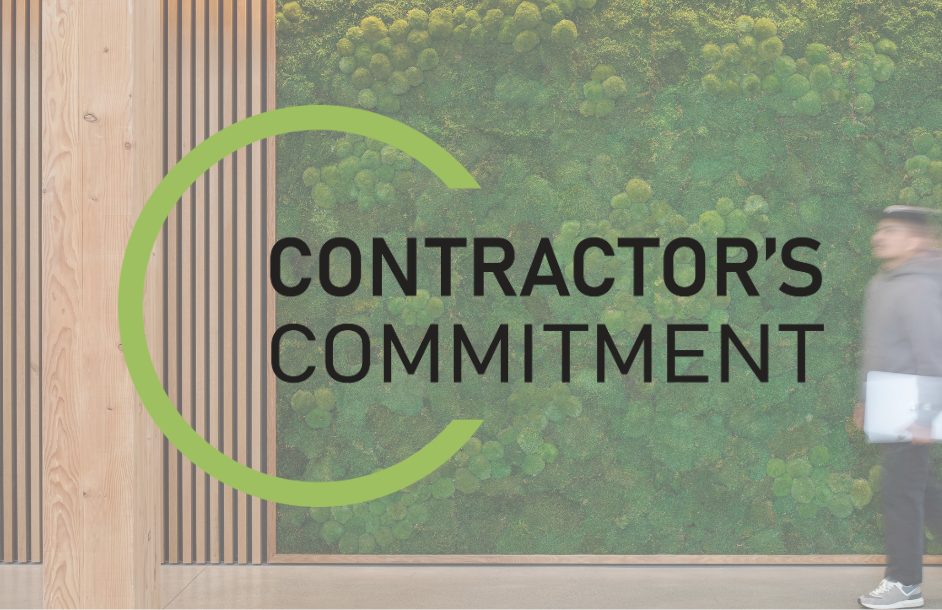Portland Division Joins Contractor’s Commitment
Swinerton’s Portland office has signed on to the Contractor’s Commitment, a framework developed by contractors and for contractors that will help to evaluate our standing as sustainable builders and elevate our performance. The Contractor’s Commitment focuses on carbon reduction, jobsite wellness, waste management, water management, and material selection.
Sustainable Builder Program
The Contractor’s Commitment has five categories of concern – carbon, jobsite wellness, waste management, water management, and material selection – with action items graded on a good, better, or best scale. As members of the Building Green Sustainable Construction Leaders peer network, Swinerton has been directly involved in the development of the program, and we’re excited to take on the challenge of developing it as a signatory.
Focus Categories
Carbon reduction: Outlines practices to reduce greenhouse gas emissions from our construction activities and our corporate operations and to advocate for greenhouse gas reductions by our partners and suppliers. The BMPs outlined in this category focus on planning, tracking, reductions, and disclosure.
Jobsite wellness: Includes actions for providing a work environment that promotes and supports health and wellness for Swinerton’s employees, which includes craft in the field and those in jobsite offices.
Waste management: Outline steps to minimize construction and demolition waste and maximize waste diversion, even on projects that are not pursuing green building certifications. Each project is unique, and project-specific waste management plans are required to ensure success on a project-by-project basis.
Water management: Promotes the responsible use of water by providing tools to assess risks and prevent water pollution on jobsites.
Material selection: Encourages assessment and selection of healthy and sustainable materials. Healthy and sustainable materials are those that minimize adverse impacts on human health and ecological systems while promoting social equity and transparency regarding their ingredients and impacts. Healthy Materials are, as much as possible, harmless during their manufacture, installation, application, operation, maintenance, and end-of-life processes.



